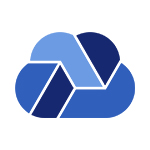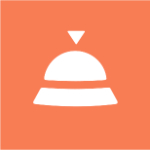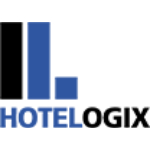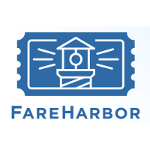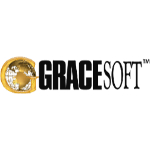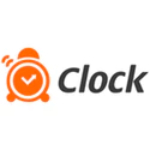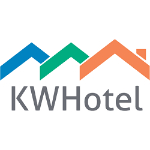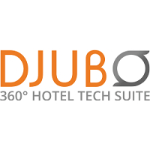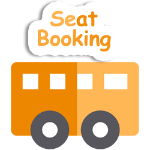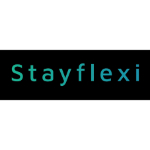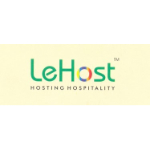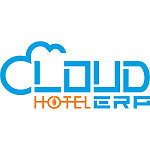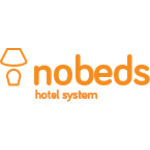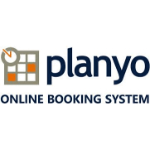TechnologyCounter provides genuine, unbiased real user reviews to help buyers make informed decisions. We may earn a referral fee when you purchase through our links, at no extra cost to you.
List of 15 Best Hotel Reservation System
Showing 1 - 15 of 162 productseZee Reservation is a thorough cloud based lodging reservation framework that accomplishes something other than getting and handling direct appointments...Read eZee Reservation Reviews
Sirvoy, the all-in-one solution for your hotel management needs. Our powerful software streamlines bookings, inventory, and payments, making it easier than ever to run your operation smoothly. With intuitive features and a user-friendly interface, Si...Read Sirvoy Reviews
Cloudbeds is a property management software that simplifies and streamlines the operations of hotels, hostels, and vacation rentals. With its powerful features interface, Cloudbeds empowers hospitality businesses to efficiently manage reservations, p...Read Cloudbeds Reviews
Hotelogix is a Hotel Management System that operates through a cloud-based platform and provides modern functionalities crucial for hotels to streamline bookings, enhance operational efficiency, and effectively boost revenue. Through Hotelogix, hote...Read Hotelogix PMS Reviews
FareHarbor is the leading booking and management software for tour and activity businesses. With user-friendly features technology, FareHarbor streamlines operations and enhances the customer experience. From small local operations to large-scale com...Read FareHarbor Reviews
GraceSoft has designed a convenient church reservation system to assist congregations in managing and tracking member and visitor attendance, as well as check-ins. This user-friendly software allows members to easily reserve seats for upcoming churc...Read GraceSoft Church Reservation Reviews
Clock PMSs software, the all-in-one solution for hotels and resorts of all sizes. With efficient tools and features, it streamlines operations, simplifies reservations, and enhances guest experiences. From managing bookings to tracking revenues, Cloc...Read Clock PMS Reviews
KWHotel is a user-friendly hotel management system that caters to the needs of small and medium-sized accommodation facilities. Its versatile design allows it to meet the needs of various industries, including yacht and surfboard rentals. Best of al...Read KWHotel Reviews
DJUBO is the only software in the world that provides a complete hotel technology suite, combining OPERATIONS, DISTRIBUTION, MARKETING, REVENUE MANAGEMENT and INTELLIGENCE solutions seamlessly in one software that is user-friendly and simple to navi...Read DJUBO Reviews
Logicspice Booking seat booking software provides your customers with the convenience of booking seats in trains, buses, airplanes, and movies at any time and from any location. Logicspice Booking feature is an excellent way to boost your businesss g...Read Logicspice Booking Reviews
Stayflexi is a cutting-edge software designed for hotels and vacation rentals. It is supported by renowned Y Combinator and provides a range of features to streamline operations, generate maximum profits from unbooked rooms, and provide flexible boo...Read StayFlexi Reviews
LeHost is a software designed to elevate your online presence. With its user-friendly interface features, LeHost allows you to effortlessly create and manage your website. Trusted by businesses and individuals alike, LeHost is a solution for a seamle...Read LeHost Reviews
Cloud Hotel ERP is a software solution designed for the Hospitality Industry. It allows our customers to efficiently manage all aspects of their hotel operations using a user-friendly and organized approach. Additionally, our software offers MIS rep...Read Cloud Hotel ERP Reviews
NOBEDS is a hotel management system that streamlines your operations and drives bookings for your property. With its user-friendly interface features, NOBEDS is the perfect solution for hotels of all sizes. Say goodbye to manual processes and hello t...Read NOBEDS Reviews
Planyo is a online booking system for businesses of all sizes. With an array of powerful features and seamless integration, Planyo streamlines the booking process for your customers while providing you with comprehensive booking management tools. Exp...Read Planyo Reviews
- What Is Hotel Reservation System?
- Top Reasons Why Businesses Need Hotel Reservation System?
- What Are the Top Key Features of Hotel Reservation System?
- What Are the Top Benefits of Hotel Reservation System?
- What Are the Steps to Choose the Right Hotel Reservation System?
- What Are the Types of Hotel Reservation System for Different Industries?
- What Are the Technology Trends for Best Hotel Reservation System?
- What Are the Deployment Options for Hotel Reservation System?
What Is Hotel Reservation System?
A hotel reservation system is a piece of software that handles bookings and reservations at hotels, motels, resorts, and other lodgings. With a few clicks, it simplifies the work of a hotelier. It is a cloud-based solution for managing and tracking all customer bookings and reservations.
Many functionalities are accessible in the hotel reservation software, such as adjusting room pricing, tracking available rooms, and managing client data. Furthermore, hotel reservation systems can be modified and integrated with the hotel's existing systems to provide a more comprehensive solution, allowing hotels to manage reservations, housekeeping operations, guest data referrals, payment processing, and other functions.
Your staff may simply access detailed information such as customer check-in and check-out times, room rates, and special requests by using the best hotel reservation system. It also integrates with a variety of other platforms, including travel agencies and third-party businesses.
Hotels that use a good hotel reservation system may provide round-the-clock customer support throughout the reservation time, assuring client pleasure and loyalty.
Top Reasons Why Businesses Need Hotel Reservation System?
1. Improves hotel operations such as the front desk, housekeeping, accounting, and other critical services.
2. Guests' check-in and check-out processes are automated.
3. A centralized database that stores guest information as well as reservation information.
4. It is interoperable with other hotel software solutions.
5. Provides robust reporting capabilities.
6. Makes handling guest demands easier for hotel staff.
7. Allows hotels to customize room availability, pricing, and features.
8. Allows for extensive tracking of visitor actions.
9. Assists hotels in assessing and managing occupancy levels.
10. Assists hotel staff in their goal of providing exceptional customer service.
11. Prevents multiple bookings and overbookings.
12. Improves the passenger experience by providing prompt and accurate bookings.
13. Facilitates the management of cancellations, refunds, and no-shows.
14. Increases upselling potential for hotels.
15. Improves the hotel's brand protection by offering guests with a simple and speedy booking process.
What Are the Top Key Features of Hotel Reservation System?
1. Online Reservations: This enables clients to book reservations online via a secure website with real-time inventory management.
2. Automated Check-in & Check-out: The procedure of checking in and out of hotel rooms is automated.
3. Room Management: In charge of managing room assignments and room blocks.
4. Guest Self-Service: Provides guests with access to information regarding their reservations, facilities, and services, among other things.
5. Room Rate Management: Allows the hotel to set market-competitive room prices.
6. Payment Processing: Securely and conveniently accepts online payments.
7. Revenue Management: Allows hotels to tailor their rate offerings to market demand.
8. Group Administration: Tracks and arranges group requests to speed up the booking process.
9. Point-of-Sale System: Combines a point-of-sale system for hotels, restaurants, and retail businesses.
10. Analytics and Reporting: Creates business intelligence reports to track critical indicators.
What Are the Top Benefits of Hotel Reservation System?
1. Reduced Booking Time: When compared to manual bookings, top hotel reservation systems allow travelers to book hotels in a fraction of the time. Reservations can be made quickly and easily online, eliminating the need to wait for hotel agents to respond.
2. Accurate Room Availability: Because a hotel reservation system keeps track of rooms and availability in real-time, bookings can be made promptly and correctly, avoiding the possibility of multiple bookings or missed chances.
3. Improved Room Management: The best hotel reservation systems enable staff to manage reservations and track room utilization, allowing hotels to properly deploy manpower and resources while ensuring customer satisfaction.
4. Comprehensive Reporting: Comprehensive reporting options enable hoteliers to track and measure their hotel's performance, such as occupancy rates booking sources, and revenue performance.
5. Improved Customer Experience: Because hotel reservation systems can give consumers specific room and amenity information, they also serve to improve the customer experience by providing faster response times and better customer service.
6. Automated Promotions: Hoteliers can automate promotional activities such as special offers, loyalty management programs, and discounts using an online hotel reservation system, allowing them to optimize bookings and maximize earnings.
7. Increased Security: Reservation hotel software helps to ensure secure transactions by securely storing and encrypting all client data, lowering the risks of data breaches and other security threats.
What Are the Steps to Choose the Right Hotel Reservation System?
1. Determine your needs - Take time to assess your present demands and plan for future requirements. What characteristics are necessary in a hotel reservation system? Consider the types of guests (group/corporate vs. leisure travel), payment choices, special requests, and reports you may require access to.
2. Market Research - Investigate the various types of hotel reservation software available and the services they provide. Make a complete list of all the top hotel reservation systems you want to study.
3. Arrange Demos - Arrange a demo with each of the best hotel reservation software you've chosen. Ask as many questions as you need to understand how the system operates and if it fulfills your needs.
4. Price Analysis - Request a price quote for each system and compare them to verify you're receiving the greatest bargain possible. Consider maintenance, training, and customer service.
5. Test the System - If the system allows it, it is always a good idea to run it in a 'dummy environment' to get a feel for it.
6. Make an Informed Decision - Once you've completed all of your research and testing, it's time to make a choice. Remember that the decision you make now may be changed in the future, so be sure you are comfortable with the system you select.
What Are the Types of Hotel Reservation System for Different Industries?
Depending on the sector, there are various types of the best hotel reservation systems. Property management systems (PMS) and central reservation systems (CRS) are the most often utilized systems in the hospitality business. Property management systems are used to manage a hotel's everyday operations.
They are commonly used to track visitor reservations, manage room prices, store guest information, and conduct point-of-sale transactions. Reservations are coordinated across numerous hospitality industries, such as hotels and vacation rental firms, using central reservation systems.
They are frequently used to handle reservations, track availability, and interface with third-party booking engines. Global distribution systems (GDS) are frequently utilized for reservations in the airline sector. They are typically used by airlines to store and distribute flight schedules, prices, and availability.
GDS systems are linked to numerous airlines, travel agencies, and other partners in the travel business. Booking systems (CBS) are used for reservations in the cruise industry. They are commonly used to connect with external agencies and cruise lines, administer shipwide operations, and handle payments.
Finally, vehicle rental systems (CRS) are utilized for reservations in the automotive industry. They are commonly used to manage and organize rental automobile fleets, as well as track availability and handle payments.
What Are the Technology Trends for Best Hotel Reservation System?
The top hotel reservation systems' technological trends are based on the ever-changing needs of the hospitality industry.
Here are a few of the most crucial trends to examine.
1. Mobile Devices: To give a better customer experience from any device, hotel operators are rapidly resorting to mobile-responsive booking sites. As travelers fly with less and fewer bags and check-ins become faster and more convenient, mobile check-in is quickly becoming the norm.
2. Online purchase Options: Payment methods such as PayPal and Apple Pay help passengers finish the purchase procedure swiftly and securely.
3. Artificial Intelligence (AI): AI-powered bots are becoming more prevalent in the hotel business. AI bots can be programmed to identify customer language and to converse in natural language processing to answer client queries and deliver individualized advice.
4. Automation: Automated systems that handle numerous operations such as booking, payments, and scheduling help hotel firms manage bookings. Process streamlining saves time and money, allowing hotels to offer more competitive prices and deals.
5. Cloud-based Solutions: To run their reservation and management systems, many hotels are now using cloud-based solutions. Hotels can keep consumer data in a secure and centralized environment using cloud technologies.
6. Augmented Reality: Some hotels are now adopting Augmented Reality (AR) apps to provide guests with a visual tour of their hotel room before making a reservation. This contributes to a more realistic picture of their guests' experience.
What Are the Deployment Options for Hotel Reservation System?
The deployment options for the best hotel reservation systems are determined by the provider's capabilities and the demands of the hotel.
The following are some of the most prevalent options:
1. On-Premises Deployment: This method of deployment comprises hosting the system on the hotel's internal server, which can be located in the hotel's physical building or another physical remote location.
2. Cloud Deployment: This option allows the software to be hosted on the server of a cloud provider rather than on a physical server. This alternative offers a more scalable and cost-effective approach.
3. Hybrid Deployment: A hybrid deployment that combines on-premises and cloud deployment. This option enables the hotel to host a portion of the system both on their server and on the cloud. This increases flexibility and scalability.
4. Software-as-a-Service (SaaS): This is a hosted solution in which the supplier manages the program. This enables the hotel to gain access to the system without having to administer it themselves. This is a popular choice because it is simple to set up and requires minimal upkeep.
